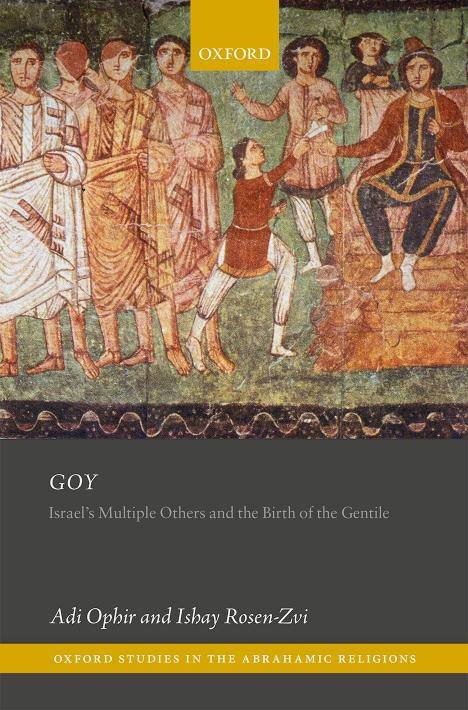

summary of Goy: Israel’s Multiple Others and the Birth of the Gentile by Adi Ophir and Ishay Rosen-Zvi:
Adi Ophir and Ishay Rosen-Zvi’s Goy: Israel’s Multiple Others and the Birth of the Gentile is a provocative historical and philosophical exploration of how the category of the “goy” (Gentile) has been constructed, negotiated, and operationalized in Jewish thought, Israeli society, and political discourse. The authors trace the development of the concept from biblical and rabbinic texts to modern Zionist ideology, examining how defining the “other” has been central to shaping Jewish self-understanding and collective identity. They argue that the figure of the goy is not a fixed or natural category but a flexible and multiply contested identity, serving both to demarcate boundaries of inclusion and to justify social, political, and territorial hierarchies. In particular, Ophir and Rosen-Zvi analyze how modern Israeli nationalism has produced various “others”—Arabs, Palestinians, and other non-Jewish populations—as political, cultural, and ethical counterpoints against which the Jewish state defines itself. The book also engages with philosophical and critical theory, drawing on thinkers such as Hannah Arendt, Giorgio Agamben, and postcolonial critique to reveal the tensions and paradoxes inherent in the construction of collective identity through exclusion. By focusing on the mutable and relational nature of the goy, the authors illuminate broader questions about power, sovereignty, ethics, and the politics of recognition. Ultimately, Goy challenges readers to rethink familiar categories of self and other, showing how historical, theological, and political discourses converge to shape both Israeli identity and the treatment of non-Jewish populations, while also offering a critical lens on the ethical responsibilities inherent in naming and differentiating human groups.


























.jpg)












.jpg)



.jpeg)









.png)







.jpeg)
.jpg)



.jpeg)
.jpg)
.jpg)

.jpg)

.jpg)










.jpg)



.jpeg)

.jpeg)


